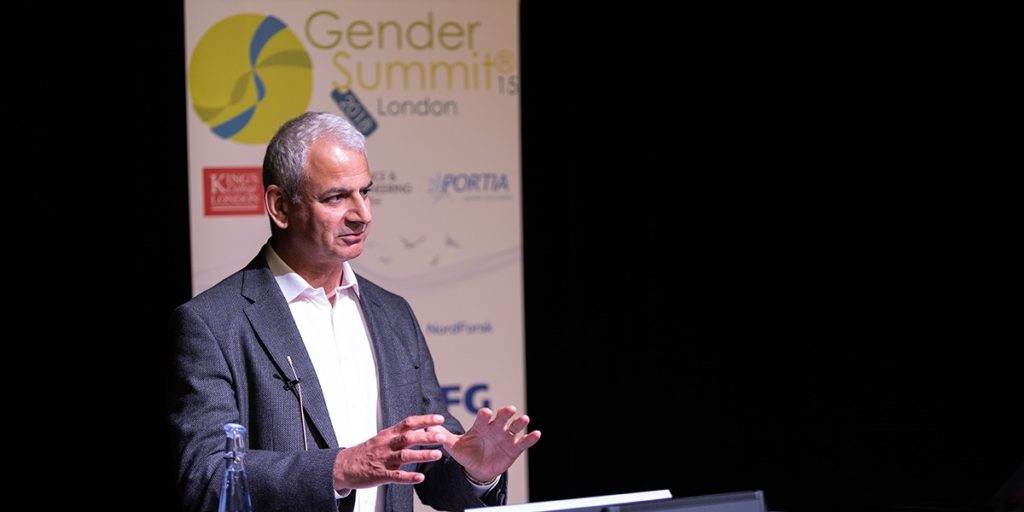How Gender Summits have shaped Elsevier’s role in the research community
Elsevier CEO Ron Mobed talks about the importance of gender diversity in science

Elsevier CEO Ron Mobed speaks at the 2018 Gender Summit – Europe in London. (Photos courtesy of Portia Ltd)
Diversity in research leads to better science. Better science leads to a society that is more informed and better equipped to make good decisions. That is the enormous value of science and the enormous value of diversity.
While diversity has many facets – from scientific discipline, gender, ethnicity and nationality, to name a few examples – I want to focus here on gender.
On Tuesday, I had the honour of speaking at the 2018 Gender Summitin London. Our involvement in these summits – this was the 15th – has helped shaped Elsevier as a company, serving as a catalyst for our progress as an information analytics business, a foundation, and a partner to the research community. Spurred by conversations at Gender Summits, we’ve pursued initiatives such as reviewing our editorial policies to embed sex and gender in research, improving our editorial board diversity, and creating analytical reports such as Gender in the Global Research Landscape.
Information analytics and gender
As an information analytics business, we have a role to play in providing evidence-based insight and guidance for intervention and policy development relating to gender equality. As such, we’ve been able to share these discoveries and insights with the Gender Summit network. Last year our Gender in the Global Research Landscape report delivered surprising insights about the role of women in scientific and medical research. We’re now part of a consortium to deliver the 2018 SHE Figures, along with Portia Ltd, QUANTOS and ICON.
- Read the full article on Elsevier Connect: “How Gender Summits have shaped Elsevier’s role in the research community“, Ron Mobed, 20 June, 2018

















